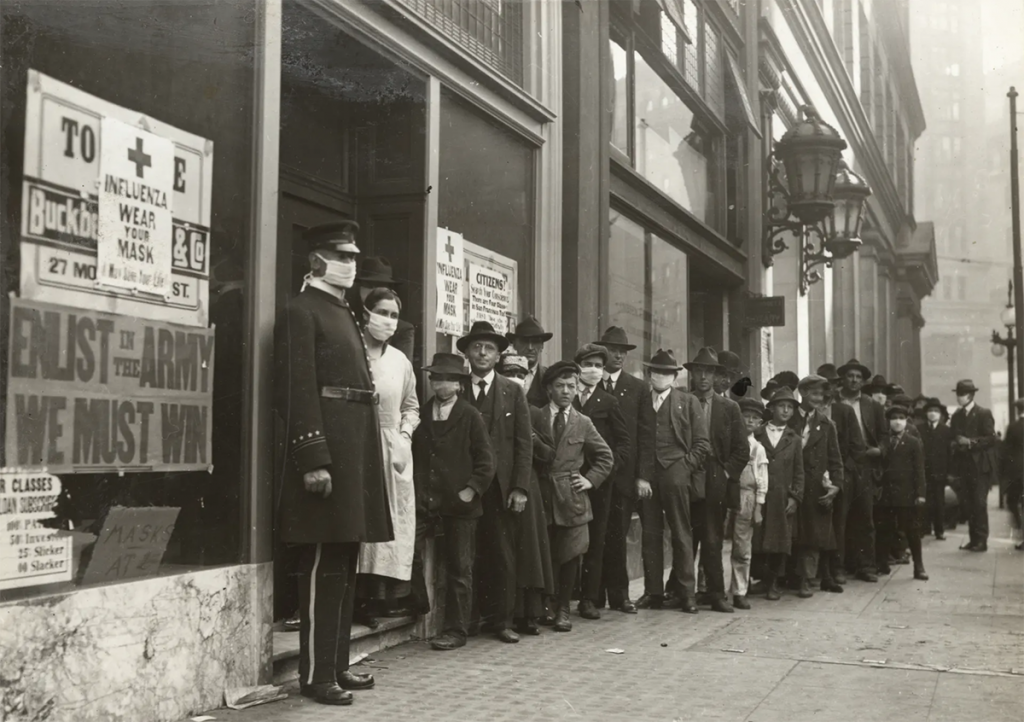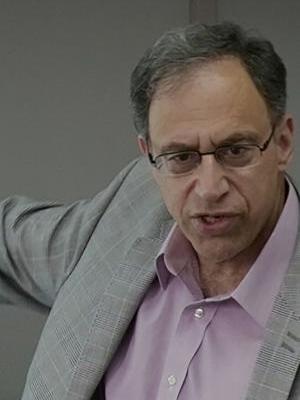Published on May 4, 2020

San Francisco residents line up during the 1918 influenza pandemic.
The current coronavirus pandemic has brought uncertainty to communities around the world. Ted Koditschek, professor emeritus of history, hopes to use his knowledge of the past to help honors students understand current challenges with a new, intensive, intersession course.
Going Viral: Comparing the 2020 Coronavirus Pandemic with the 1918 Flu, is a discussion-based course that will compare the current coronavirus pandemic with the 1918 flu outbreak. The first half of the class will focus on the past, while the other half will present current issues, using contemporary literature, as they develop.
As one of the first courses in the nation about COVID-19, this is a pathbreaking effort. It fits, naturally, with what has been happening in the classroom. Koditschek says he has shifted from teaching his usual field courses to broader course offerings using history to better understand current events.

Ted Koditschek
“As a historian, it’s a lot easier to get students interested in things that are contemporary, in terms of history, to try to show them how history can help us understand things that are actually going on in their own lives –– not just this kind of distant, abstract thing about things that happened a long time ago,” Koditschek says.
He was also inspired by this year’s Honors College One Read, The Great Believers by Rebecca Makkai, which focuses on the AIDS crisis. He taught the One Read Honors tutorial course this fall and covered many other epidemics, leading to his inspiration for the course before the coronavirus pandemic even occurred.
“The one epidemic we didn’t really focus on there, and the one we just didn’t have time for, was the 1918 pandemic, so that also led me to think, ‘Well, the comparisons between that and what’s happening now are very clear-cut, and it would be a good opportunity to focus on that particular comparison,’” Koditschek says.
Because of the changing events and discoveries surrounding the current pandemic, Koditschek says readings and topics are not as easy to come by and are rapidly changing. He has been following the latest developments and says he will adjust the course content accordingly.
Additionally, Koditschek says he will feature the expertise of scientists in the MU community. He is building a panel, which includes Nobel laureate George P. Smith, that will speak to students in the course regarding the science behind the 1918 pandemic and give the latest information on the current situation.
Koditschek says he ultimately understands that the information for the class has to set itself at some point but that it is still important to look at issues as they are happening.
“Obviously, it will be possible to think about it in retrospect in ways that we can’t think about it while it’s going on, but we have to start somewhere,” Koditschek says. “I think it’s important to begin thinking about these things right away. Whatever the outcome of this is, it’s going to be pretty fundamental.”
Students interested in enrolling in the course should speak to an Honors advisor.